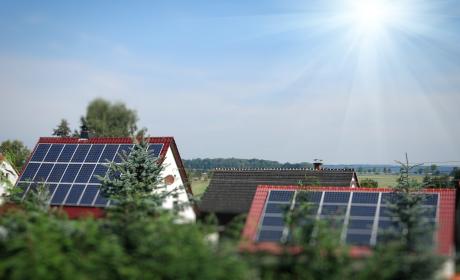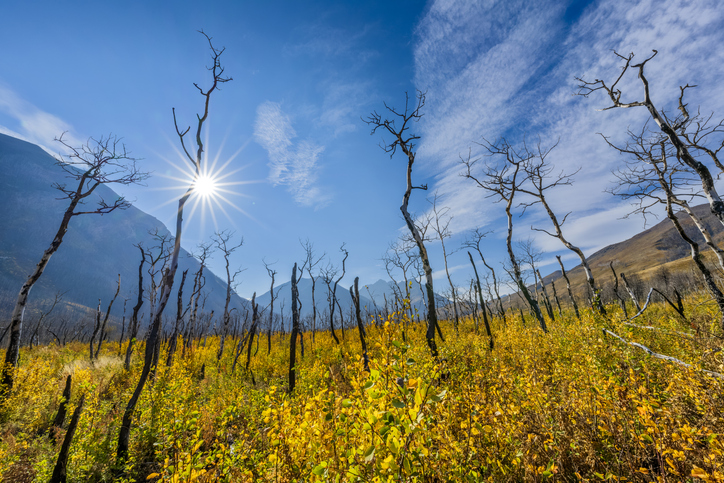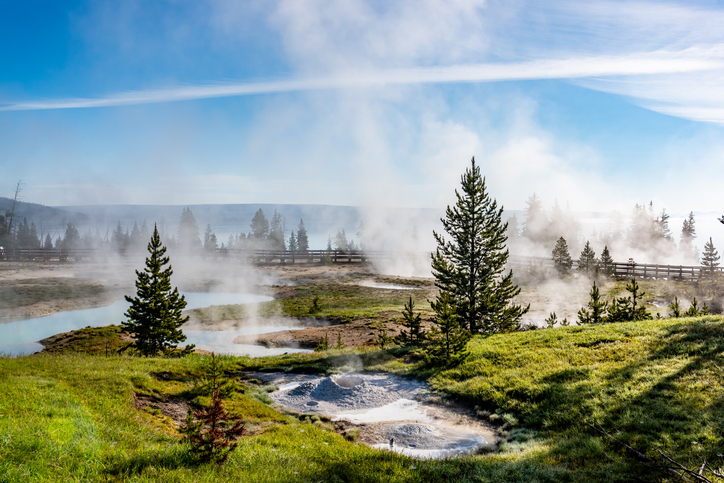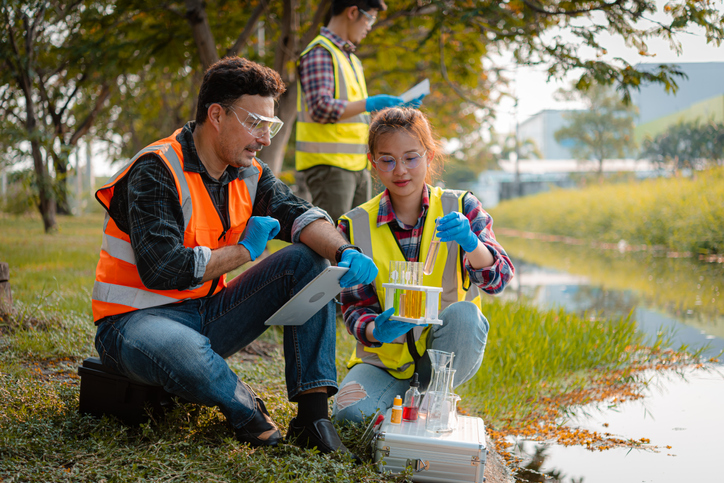Tuesday, September 23, 2025
As Canada ramps up efforts to transition to renewable energy, a new initiative in the North is putting Indigenous-led solutions in the spotlight. The Inuvialuit Regional Corporation (IRC) has been awarded $4.6 million, the largest share of a recent federal funding announcement, for its Renewable Energy Cabin Retrofit Program, which will bring solar installations to off-grid cabins across the Inuvialuit Settlement Region (ISR) in the Northwest Territories.
The announcement came earlier this month, during Minister of Environment and Climate Change Julie Dabrusin’s visit to Denendeh Manor, an Indigenous-owned apartment building in Yellowknife.
In total, $13.3 million was committed to five clean energy projects in Alberta and the Northwest Territories through the Low Carbon Economy Fund’s (LCEF) Indigenous Leadership stream.
What is the Low Carbon Economy Fund?
The Low Carbon Economy Fund (LCEF) is a federal program designed to support projects that reduce greenhouse gas emissions, promote clean growth, and enhance climate resilience across Canada. As part of the country’s strategy to meet its 2030 climate targets and achieve net-zero emissions by 2050, the fund operates through four streams.
The Inuvialuit Regional Corporation’s Renewable Energy Cabin Retrofit Program is being funded through the Indigenous Leadership Fund, which specifically supports clean energy and energy efficiency initiatives led by First Nations, Inuit, and Métis governments, communities, and organizations.
According to a statement from Environment and Climate Change Canada, projects selected under the Indigenous Leadership Fund must “incorporate or make use of renewable energy, energy efficiency, or low-carbon heating technologies and practices; offer broader environmental, social, and economic benefits; and use proven technologies and practices.”
 Minister of Environment and Climate Change Julie Dabrusin visits Denendeh Manor, an Indigenous-owned apartment building in Yellowknife, NWT on July 2, 2025. Credit: Government of Canada.
Minister of Environment and Climate Change Julie Dabrusin visits Denendeh Manor, an Indigenous-owned apartment building in Yellowknife, NWT on July 2, 2025. Credit: Government of Canada.
Generating opportunities and independence among remote communities
For many cabin owners in the ISR, especially those in off-grid areas, access to reliable, affordable energy has been a long-standing challenge. The new program offers a viable alternative to diesel, aiming to lower fuel costs, reduce emissions, and support energy security in harsh and remote conditions.
“It is up to all of us to take meaningful steps to reduce greenhouse gas emissions while positioning Canada as a global leader in the clean economy,” said Minister Dabrusin. “Through investments like these, the Government of Canada is empowering communities and organizations to lead the way in securing long-term economic and environmental success.”
Beyond solar installations, the program includes workshops in six ISR communities to train residents on solar panel installation and maintenance, fostering both energy literacy and local job skills.
The IRC has stated that the project is designed to improve energy security and affordability for community members living in remote areas.
Environmental impacts for the region
The ISR Renewable Energy Cabin Retrofit project, which will be delivered by the IRC, aims to supply ground-mounted solar installation kits to Inuvialuit-owned cabins for improved accessibility, usability, and longevity of the solar photovoltaic (PV) systems.
Although exact timelines for rollout remain unconfirmed, the ministry is working closely with IRC to finalize implementation plans and assess emissions reductions over time.
A similar but smaller program exists in Nunavut. The territorial government offers up to $5,000 per cabin under its Renewable Energy Cabin Grant to help residents install solar or wind systems.
Since 2017, nearly 200 Indigenous clean energy projects, including 171 medium‑to‑large systems, have been developed or are nearing completion, reflecting a significant national surge in Indigenous-led clean energy across Canada.
These programs, whether funded by the federal Low Carbon Economy Fund, supported through territorial grants like Nunavut’s, or led by communities like the IRC, reflect a growing movement toward energy self-sufficiency in off-grid cabins and camps across the North.
As the region bears the brunt of climate change, initiatives like the Renewable Energy Cabin Retrofit Program aren’t just about installing solar panels; they’re about advancing energy sovereignty, fostering economic empowerment, and building a more sustainable future led by the communities themselves.

Shreejit Shelar is an editorial intern for Environment Journal. He is a writer and a student of Contemporary Journalism at Centennial College.
Featured images credits: Getty Images












